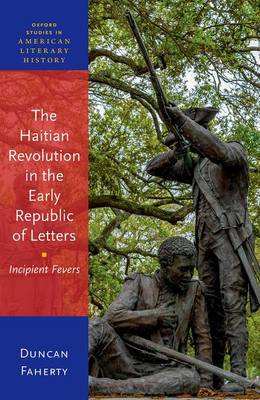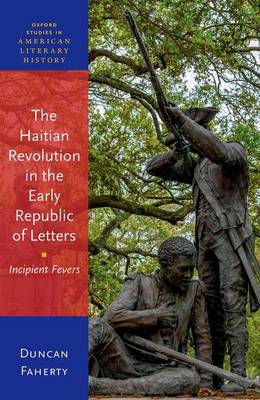
- Retrait gratuit dans votre magasin Club
- 7.000.000 titres dans notre catalogue
- Payer en toute sécurité
- Toujours un magasin près de chez vous
- Retrait gratuit dans votre magasin Club
- 7.000.000 titres dans notre catalogue
- Payer en toute sécurité
- Toujours un magasin près de chez vous
Description
Concerns about Haiti suffused the early American print public sphere from the outbreak of the revolution in 1791 until well after its conclusion in 1804. The gothic, sentimental, and sensationalist undertones of openly speculative periodical accounts were accelerated within the genre of fiction, where the specter of Haiti was a commonplace trope. Haiti was not an enigma occasionally deployed by American writers, but rather the overt bellwether against which the prospects for national futurity were imagined and interrogated. Ideological representations of Haiti infected the imaginations of early American readers in ways that have yet to be accounted for in American literary history. Unfortunately, scholars have long occluded how early Americans understood their nation as entwined with Haiti. Faherty aims to counter this tacit disavowal by registering just how obsessed early American readers were with the seismic force of the Haitian Revolution and its capacity to produce aftershocks in the American domestic sphere. In unraveling how American literary history has silenced certain historical contexts around race, citizenship, belonging, and freedom, The Haitian Revolution in the Early Republic of Letters: Incipient Fevers recuperates lost textual objects while redressing a crucial blind spot in American literary history. For myriad writers in the early Republic, Haiti was both unambiguously familiar and categorically incompatible. Synchronously held fast and rejected, Haiti was the ever-present index of the United States: a distorted reflection of the Republic's past, a troubling echo of its present, and a nightmarish harbinger of divisive futures.
Spécifications
Parties prenantes
- Auteur(s) :
- Editeur:
Contenu
- Nombre de pages :
- 288
- Langue:
- Anglais
- Collection :
Caractéristiques
- EAN:
- 9780192889157
- Date de parution :
- 16-01-24
- Format:
- Livre relié
- Format numérique:
- Genaaid
- Dimensions :
- 157 mm x 229 mm
- Poids :
- 566 g







